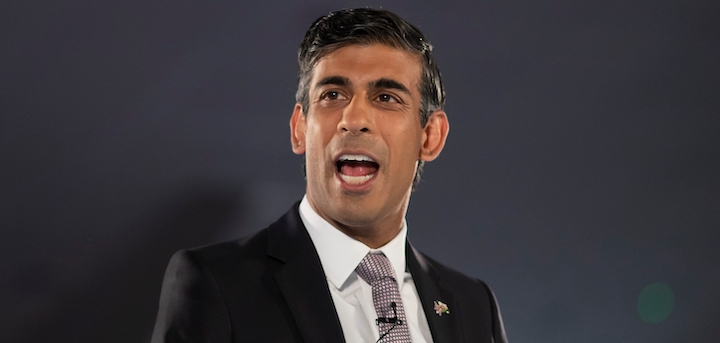There is no crisis in local government finance and bringing inflation down will help resolve the challenges facing authorities, according to Prime Minister Rishi Sunak.
Speaking to the cross-party Liaison Committee, Sunak said the amount of direct cash grant going from central to local government has doubled, in cash terms, since 2019. He also noted that the £600m boost in the most recent local government finance settlement would mean that “councils, on average, will have around 7.5% more spending power this forthcoming year than they had last year”.
Questioning the Prime Minister, Clive Betts, chair of the Levelling Up, Housing and Communities Committee, observed that this increase was in the context of a 30% cut in councils’ spending power since 2010.
Betts asked Sunak why the Local Government Association is “saying that 20% of councils face the threat of bankruptcy in the next two years”, to which no direct response was given. Betts also questioned the Prime Minister on forecasts that the Department for Levelling Up, Housing and Communities will receive no growth in spending in the next Parliament, as it is not a protected department. “Is it really sustainable that local councils could face no increase in support from the government at all for four years without making increased cuts to their services, which are already at rock bottom, or putting up council tax by excessive amounts?” he asked.
Sunak refused to confirm or deny the accuracy of the forecasts as “the next spending review has not been done”, and therefore the “overall public spending growth in real terms over the next spending review period – in cash terms by something like 2.5% or 2.7% annually […] has not been divvied up into various departments, and that is what spending reviews are for”.
He warned, though, that any spending increases in one area would have to come at the expense of another department. “I always come here, we have these debates, and it is completely reasonable for everyone to say that in their individual area they would like more money to be spent on their particular interest,” Sunak told Betts. “But I think it is incumbent on colleagues to explain which department they think that increase should come at the expense of, or indeed what taxes should be raised to pay for it.”
Separately, Robin Walker, chair of the House of Commons Education Select Committee, asked about better co-ordination of support for local authorities in areas such as “the high needs budget, in the children’s social care budget and in home-to-school transport”. Noting the deficits in these areas, Walker asked: “Can we make sure that we invest in addressing those deficits rather than in programmes to run them, like Safety Valve and Delivering Better Value, which seem to be getting larger and larger over the years but without actually reducing or removing those deficits?”
Sunak noted that, over the course of the current Parliament, the high needs budget has “seen increases of around 60% since 2019”. He said the “cross-cutting nature” of support “isn’t always easy for government to get precisely right”. The Prime Minister added: “I think what we need to do is make sure that those ministers are joined up and that when it comes to spending reviews – I have seen this as local government minister, chief secretary, chancellor and now Prime Minister – we make sure, at the moment of the spending review, that the relevant departments in areas which have cross-cutting equities are properly co-ordinated, so that things don’t fall between the gaps.”
On investing in solutions rather than just focusing on immediate relief, Sunak pointed to the £70m invested in the Change programme, which launched in the autumn of last year. “There are nine different partnerships and it covers about 30 different local areas,” he explained. “It is important that we test those interventions at that level before rolling them out on a system-wide basis. People might have debates about the pace but, given the importance of getting the reforms right – to alleviate the longer-term pressure – it’s right that we try all those first in those areas.”
Clive Betts was the keynote speaker at the recent LATIF North conference, held in York. His speech addressed possible solutions to the financial challenges facing local authorities, and Room151’s report can be read here.
—————
FREE bi-weekly newsletters
Subscribe to Room151 Newsletters
Follow us on LinkedIn
Follow us here
Monthly Online Treasury Briefing
Sign up here with a .gov.uk email address
Room151 Webinars
Visit the Room151 channel













